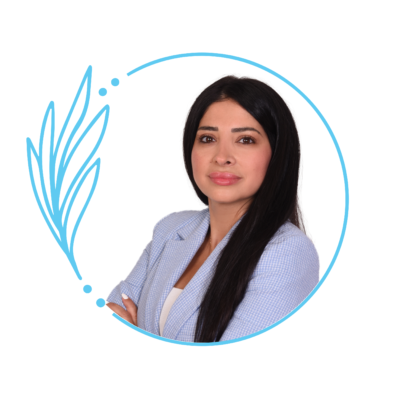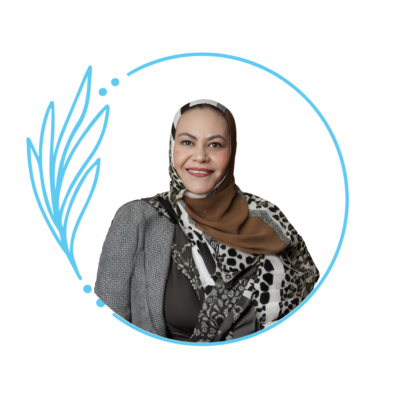Childhood Development in Dubai UAE
What is Child Intervention Services?
Our child intervention services encompass a range of therapeutic interventions and support programs designed to address the emotional, behavioral, and developmental needs of children and adolescents. These services aim to promote healthy development, enhance coping skills, and address challenges such as anxiety, depression, trauma, ADHD, speech and language difficulties, behavioral problems, and family conflicts. Our team of professionals is dedicated to providing personalised care to help your child thrive.
We also provide educational and personality assessments. These are valuable tools used to gain insight into an individual’s cognitive abilities, academic strengths and weaknesses, personality traits, and emotional functioning. These assessments can provide valuable information for educational planning, career guidance, personal development, and mental health treatment. By identifying areas of strength and areas for growth, assessments can help individuals achieve their full potential and navigate life’s challenges more effectively.

Range of Child Intervention Services
Speech & Language Therapy
Speech and language therapy is essential for children experiencing difficulties with communication, speech production, and language development. Our licensed speech-language pathologists provide comprehensive evaluations and targeted interventions to address a wide range of speech and language disorders, including articulation disorders, language delays, stuttering, and social communication difficulties. Using evidence-based techniques and individualised treatment plans, we help children improve their communication skills, build confidence in expressing themselves, and participate more fully in social interactions and academic activities.
Psychomotor Therapy
Psychomotor therapy focuses on enhancing children’s physical and motor development through structured movement-based activities and exercises. Our experienced psychomotor therapists assess children’s motor skills, coordination, and sensory processing abilities to identify areas of strength and areas for improvement. Through play-based interventions, sensory integration techniques, and coordination exercises, we help children develop body awareness, improve gross and fine motor skills, and build confidence in their physical abilities.
Child Psychiatry
Our clinic offers comprehensive psychiatric services for children and adolescents struggling with mental health concerns. Our board-certified child and adolescent psychiatrists specialise in diagnosing and treating a wide range of psychiatric disorders, including anxiety, depression, ADHD, bipolar disorder, and trauma-related disorders. Through thorough assessments, medication management, and evidence-based therapies, we provide compassionate and comprehensive care to support children’s mental health and well-being.
Child Psychology & Psychotherapy
Child psychology and psychotherapy services are tailored to address the unique emotional, behavioral, and developmental needs of children and adolescents. Our licensed child psychologists and psychotherapists utilise a variety of therapeutic approaches, including cognitive-behavioral therapy (CBT), play therapy, and family therapy, to help children navigate challenges, manage emotions, and develop coping skills. Through individualised treatment plans and a strengths-based approach, we empower children to overcome obstacles, build resilience, and thrive in all areas of their lives.
Teacher & Parent Workshops
Our clinic offers workshops and training sessions for teachers and parents to enhance their understanding of child development, behavior management techniques, and strategies for supporting children’s mental health and well-being. Led by our experienced clinicians, these workshops cover a variety of topics, including positive parenting strategies, effective communication skills, classroom accommodations, and promoting social-emotional learning. By providing education, guidance, and practical tools, we empower teachers and parents to create supportive environments that foster children’s growth, development, and success.
Educational Psychology & Assessments
Educational psychology and assessments play a crucial role in identifying children’s learning strengths and challenges and guiding appropriate interventions and support services. Our licensed educational psychologists conduct comprehensive assessments to evaluate children’s cognitive abilities, academic skills, and socio-emotional functioning. Through standardised testing, observation, and interviews, we gain valuable insights into children’s learning profiles and provide recommendations for tailored interventions, accommodations, and educational services to support their academic success and overall well-being.
Types of educational difficulties
- Attention-Deficit/Hyperactivity Disorder (ADHD): ADHD is characterised by persistent patterns of inattention, hyperactivity, and impulsivity that interfere with academic performance and social functioning. Individuals with ADHD may have difficulty staying focused, following instructions, organising tasks, and controlling impulses.
- Learning Disabilities: Learning disabilities encompass a range of disorders that affect the acquisition and use of listening, speaking, reading, writing, reasoning, or mathematical abilities. Examples include dyslexia (reading disability), dysgraphia (writing disability), dyscalculia (math disability), and auditory processing disorder.
- Autism Spectrum Disorder (ASD): ASD is a developmental disorder that affects communication, social interaction, and behavior. Individuals with ASD may have difficulty with social skills, understanding nonverbal cues, and engaging in reciprocal conversation, which can impact their ability to learn in traditional educational settings.
- Intellectual Disabilities: Intellectual disabilities are characterised by significant limitations in intellectual functioning (such as reasoning, problem-solving, and judgment) and adaptive behavior (such as communication, self-care, and social skills). These limitations can affect an individual’s ability to learn and adapt to new information and experiences.
- Executive Functioning Deficits: Executive functioning refers to a set of mental skills that help individuals manage time, pay attention, plan and organise, set goals, and regulate emotions. Difficulties with executive functioning can interfere with academic performance, time management, and self-regulation.
- Emotional or Behavioral Disorders: Emotional or behavioral disorders encompass a range of conditions characterised by persistent patterns of disruptive, aggressive, or emotionally unstable behavior. These difficulties can impact academic performance, social relationships, and overall well-being.
- Speech and Language Disorders: Speech and language disorders affect the ability to produce or understand speech and/or use language to communicate effectively. These difficulties can impact reading, writing, and social interaction skills, leading to challenges in the educational setting.
- Visual or Hearing Impairments: Visual or hearing impairments can affect an individual’s ability to access and process information presented in the educational environment. Individuals with visual impairments may require accommodations such as braille materials or assistive technology, while those with hearing impairments may benefit from sign language interpreters or hearing aids.
These are just a few examples of the many educational difficulties that individuals may experience. It’s important for educators, parents, and healthcare professionals to identify and address these difficulties early to provide appropriate support and interventions for affected individuals.
Highly skilled, experienced and compassionate Therapists
Our team consists of licensed psychologists with expertise in various therapeutic modalities, including cognitive-behavioral therapy (CBT), mindfulness-based approaches, solution-focused therapy, trauma informed EMDR therapy and more. Each counselor brings a unique blend of skills and experiences to help you address your specific needs and goals.
Why Choose Open Minds?
At Open Minds, we are committed to providing you with the highest quality of care in a warm and welcoming environment. Whether you're seeking individual therapy, couples counseling, child intervention services, or corporate support, we're here to help you on your journey to better mental health and overall well-being.

Tania Hachem Samarani
Tania Hachem is a trilingual psychomotor therapist with extensive professional experience.

Mr. Asif Khan
With over three years of hands-on experience as a Pediatric Occupational Therapist in diverse clinical settings.

Ms. Randa Sekmani
Randa Sekmani is a Psychologist and School Counselor, with over 14 years of experience in Lebanon and Dubai. She holds an MSC in Psychology in IUL University, and a Bachelor of arts in Adjustment Psychology.

Dr. Ajay Kumar
Dr. Ajay Kumar is a Specialist Psychiatrist with around 7 years of experience as a Psychiatrist

Luxy K L
Luxy K L is a Senior Clinical Psychologist who has expertise in diagnosing and providing psychology services.

Dr. Inas Salem
Dr. Inas is an experienced and skilled specialist psychiatrist with over 20 years’ experience
FAQs
If your child is experiencing difficulties in school, social settings, or at home, or if they are exhibiting signs of emotional distress, behavioral problems, or developmental delays, they may benefit from intervention services. Common indicators include academic struggles, withdrawal from social activities, aggression, mood swings, difficulty managing emotions, and changes in sleep or appetite patterns. Our team can conduct assessments to identify your child’s needs and recommend appropriate interventions.
During your child’s initial appointment, the intervention specialist will conduct a comprehensive assessment to gather information about your child’s strengths, challenges, and developmental history. This may involve interviews, behavioral observations, standardized assessments, and consultations with other professionals involved in your child’s care, such as teachers or pediatricians. Based on this assessment, the specialist will work with you to develop a tailored intervention plan to address your child’s needs.
We offer a range of evidence-based interventions tailored to meet the unique needs of each child and family. These may include individual therapy, family therapy, play therapy, cognitive-behavioral therapy (CBT), social skills training, parent education and support, school consultation, and coordination with other service providers. Our goal is to provide comprehensive support to help your child overcome challenges and reach their full potential.
The duration and frequency of intervention sessions depend on the nature and severity of your child’s concerns, as well as their response to treatment. Some children may benefit from short-term, focused interventions, while others may require ongoing support over a longer period. Your intervention specialist will collaborate with you to develop a treatment plan that meets your child’s needs and fits your family’s schedule.
Yes, your child’s privacy and confidentiality are important to us. Intervention sessions are conducted in a safe and confidential environment, and information shared during sessions is kept confidential in accordance with ethical guidelines and legal requirements. However, there are exceptions to confidentiality in cases where there is a risk of harm to your child or others. Your intervention specialist will discuss confidentiality and its limitations with you during your child’s first appointment.
Individuals of all ages can benefit from educational and personality assessments. These assessments may be particularly helpful for children and adolescents who are struggling academically, adults seeking career guidance or personal development, individuals experiencing emotional difficulties, and those undergoing psychotherapy or counseling. Our team of professionals is trained to administer and interpret assessments for individuals across the lifespan.
